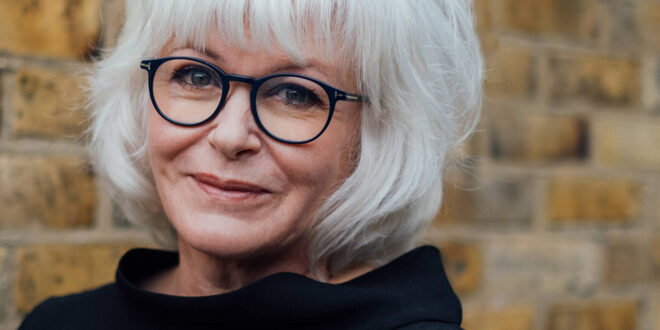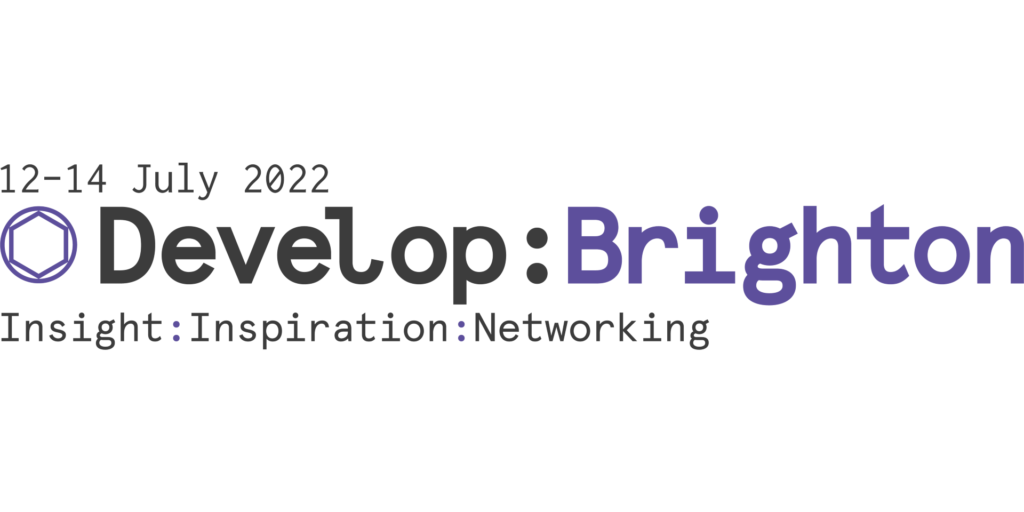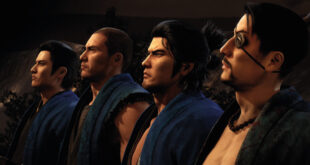As the venerable Newcastle developer caps its 15th year as part of team Ubisoft, Richie Shoemaker catches up with Reflections and Leamington studio MD Lise Opie as she settles in behind the wheel.
Mention Reflections to anyone who has followed games for any discernible length of time and they’ll wistfully relay memories of Destruction Derby and Driver on PS1, among the first and last great games on PS1. Or perhaps even hark back to the time of Shadow of the Beast on the Amiga; the first title to take the Reflections name way back in 1989. Given that the Newcastle studio’s solo output in more recent years has been limited to more experimental indie-style games, such as Grow Home and Atomega, many gamers might be forgiven for thinking that the Newcastle studio’s blockbusting days are behind it. Before of course having to be reminded that in today’s global industry no studio is an island and Reflections has been integral to the success of every one of the recent Ghost Recon, The Division, The Crew and Watch Dogs games.
Despite being a recent convert to the joys of gaming since joining Ubisoft last year, Lisa Opie is fully aware both of Reflections’ legacy and its less celebrated importance within Europe’s biggest native games publisher — of which it has been a part for precisely half its existence. She is also keen to stress — naturally, since she is the managing director of both — that while Reflections is the bigger and more venerable of Ubisoft’s UK outposts, the increasingly conjoined Ubisoft Leamington – despite being 200 miles south — is fast becoming its equal.
“Both studios work very collaboratively together, and continue to be involved in some of the most exciting projects that Ubisoft makes,” says Opie. “Coming in from outside, and especially into the games industry for the first time, what I’ve been absolutely blown away by is the degree of collaboration that happens globally, across all of the studios. Just over the last couple of years, the guys are really, really proud of what they did on The Division 2, Just Dance and Watch Dogs Legion. We very much have kept relevant and continue to grow.”
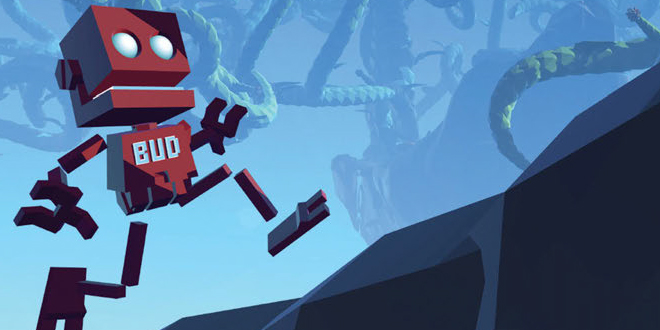
AMBITION’S CREED
There’s a charge often levelled at Ubisoft games — the Assassin’s Creeds, Far Crys and the like — that they can feel so similar in how gameplay is structured, that they lack an identity of their own. The term Ubiworld has been disparagingly applied to almost every open world game the publisher has released (and many it hasn’t). As well as being rather reductive and increasingly unfair, however, it also implies that the studios themselves lack individuality – that the global outposts of Ubisoft are as templated as the games it has been accused of mass producing.
Is that the case in the UK, and perhaps more importantly, would it really matter if they were? “I do think identity matters,” says Opie emphatically. “Like Red Storm, like RedLynx, like Massive, Reflections does stand up there in terms of reputation. And I think what Ubisoft does really brilliantly, is have a very global approach that’s highly collaborative, but also allows local voices. Each studio brings something unique to the table. I think we’re renowned for the fact that we’re very good at tech, we lead the way, we’re very innovative in the approach that we take. We’re really brilliant at world building, it’s something we’ve contributed to a lot of Ubisoft games. So I think there are unique strengths that we bring as a team, and a lot of ambition too. I’m very ambitious,” she adds.
LOCAL HEROES
Part of the ambition that will, perhaps, define Opie-era Reflections is to build a new IP and do right by the long-beloved Assassin’s Creed franchise, with the studios heavily involved in what will be the first VR extension to the 15-year-old series.
The Reflections and Leamington MD is also eager to build on the strength of both studios, keeping each rooted in their respective regions, while also bringing them closer together through greater and more meaningful collaboration.
“I’m keen that they’d stay as distinct organisations because I think they should be connected to the local community, but that they have their own social activities and events – the things that are really, really important to them.” Opie insists that Ubisoft ultimately benefits from Leamington’s position at the geographical centre of UK game development, while Reflections has a larger and more stable position in the North East. They work really collaboratively, as joint leads or joint teams, just split between one site and the other. And increasingly now that Covid is just about beginning to move past us, we encourage people to travel between the two sites. It’s really important that they get to meet each other, too.”
The connection to local games education and other development studios has recently extended to fostering a number of apprenticeships aided by BBC Hub in Birmingham to help build up creative service skills across the West Midlands. Meanwhile, in Newcastle, Reflections works closely with the city’s university. “I’m really, really keen that we do feel accessible to local communities and what we do can encourage that connection. It’s really important to stay grounded in the locations that we’re in. We’re not going to lose that.”
“What Ubisoft does really brilliantly, is have a very global approach that’s highly collaborative, but also allows local voices. Each studio brings something unique to the table.”
LEAP OF FAITH
While Opie’s role at Ubisoft is her first in games, she’s no stranger to the particular demands of the creative industries. Up until last August she was the managing director for BBC Studios, heading up the production of everything from Blue Planet 2 and Strictly Come Dancing, to Luther, Eastenders and live broadcasts from Glastonbury.
However, given her length of service to the national broadcaster (and her many years in independent TV production before that), we have to ask what madness prevailed upon her to consider switching over to game production?
“Games wasn’t something that leapt into my head immediately,” admits Opie, “but what really, really appealed was that the game sector is growing; it’s vibrant and expanding. In so many ways it’s only just moved past its adolescence. It’s still young. Television in comparison feels as if it’s very often managing declines.” The relative youth of the games industry is of course reflected in the gaming audience, whom Opie also canvassed before considering her career move – which is to say she approached her gamer son for some insight. He quickly suggested the games she needed to play, and went so far as to write a glossary of gaming terms and acronyms to guide her as she tried them out.
“I have to be honest, I was really blown away by how deep and rich the creativity was within the game sector. In terms of the engagement, and the narrative, and the storytelling, and the cinematography, I found I was really surprised. I think I had, like many people within the TV industry, maybe a very narrow view as to what video games delivered. And culturally, it’s an awful lot richer than that. It’s the most popular form of entertainment in the world. Why wouldn’t you want to work in it!” Opie tried the latest Assassin’s Creed as a matter of course, The Last of Us 2, Elden Ring and a smattering of modern indie classics, from which we can derive that not only does her son have an excellent taste in games, he very clearly wanted his mum to put in the required effort to land the job. “I had repetitive strain injury in my thumbs, genuinely, for the first few months,” she laughs. “Now I do quite a bit of YouTube watching.”
“I really believe that we will be better creatively if we are more diverse. It’s important that we reflect the people who play our games.”
SKILLSCREEN
While she did have some concerns about joining the games industry, Opie says she had no doubts about her capacity to learn or contribute, or that her skills or experience might be misplaced. Moreover, in spite of a perennial skills shortage across the creative industries and the residual opposition that some people might hold towards those coming into games from outside the industry, Opie has found those around her to be welcoming and generous. So much so that she in turn hopes to return the gesture to others that might have been similarly reticent to get their thumbs twisted. “I really believe that we will be better creatively if we are more diverse. Creativity is dependent on different viewpoints on different views of the world, on people with different voices. And I think it’s really important that we reflect the people who play our games. So I’m really keen to look at ways of bringing people into Ubisoft and into Reflections and Leamington who come from different backgrounds and bring different ideas and different thoughts.”
For all that they share, Opie readily admits that TV and games are very different sectors. By way of an example she says that while she could make a television programme (“a very bad one”), games are by their nature more complex, iterative and collaborative. Even so, she recognises that people from outside games have much to contribute, to the degree that it should be the duty of everyone within gaming to invite them with open arms. “It’s really important that we try to do that if we’re going to deal with the skills issues that we have. We’re going to have to think differently and laterally about how we address them.”

MINDING THE GAP
Opie’s passion for inclusion and diversity naturally includes getting more women and those from disadvantaged economic backgrounds into the games industry, which she believes is achievable in simple and practical ways.
“One of the first things we’ve been looking at is how we rewrite our job descriptions, so that they are more appealing and women feel more able to apply for roles. And that we’re not using some of the language that has traditionally been used for game studios. We’ve been making sure that the skills and competencies we’re asking for are not skewed towards a more male group of people. You know, it’s very easy to tip into asking something that endorses an application from somebody who’s been in the industry for a long, long time.
So I think that’s really important. One of the pieces of research we’ve done — and I think this is probably true in television, too — is that it can be harder to bring in a broad and diverse set into the creative sector, because your career path is not as clear as it is in other industries. From a socio economic perspective it can be less attractive because you look at the industry and go ‘blimey, that looks difficult. Do I need a PhD from an Oxford university? And what do you earn? And where, and how do you progress?’ All of those kinds of concerns make our industry less easy to access and less open. “What we’re really keen to do is to be really clear about what career paths you can take and how you can progress from one role or discipline to another, how you could come into QA but look to move over into a programming role. We’re exploring ways in which we can use learning and apprenticeships to support some of that movement as well.“
“Cultures are living breathing things. They constantly need to be looked after. You constantly need to make sure that people feel that they can speak out and that they’re heard.”
GET THE BALANCE RIGHT
Enhancing the identity of Reflections and Leamington within Ubisoft and the wider industry and building a more diverse culture are of course long term goals for Opie, which is to say longer than the ten months she has been in post. Has there been much opportunity to effect more immediate change within the organisation, or put her own stamp on how Reflections will operate in the months and years ahead?
“I’ve been learning a lot and I’ve been listening even more, because I think having a plan that is everybody’s plan rather than just mine has been critical,” she says. “Part of that plan has been to make Reflections and Leamington more transparent. We’ve also kind of restated what we want to achieve and what those objectives are, as I’ve talked about; being brilliant at CoDev, skills are a big issue, and attracting and retaining the best talent. It’s about creating a culture where people feel that they’re cared for.”
Opie is the first to admit that the foundations were already in place before she arrived: “There was a brilliant team when I got here and they’d done a great job at putting those things in place. But building on that, we’re now beginning to involve people and thinking how we can best support neurodiversity within the studios.” Opie mentions that Reflections has 20 wellbeing champions; “mental health first aiders that reach out to individuals and provide massive support. Being a great employer is a big part of what I would like to achieve, and having a real focus going forward on people’s work-life balance, wellbeing and offering them good support.”
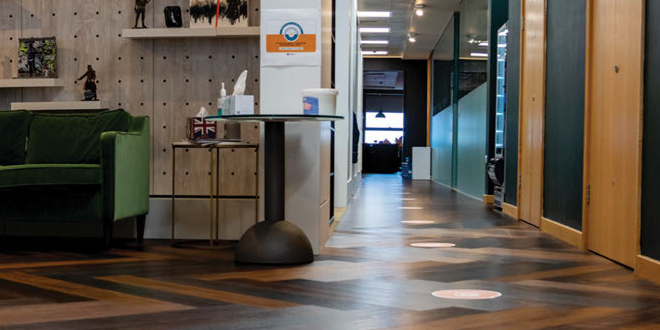
SHADOW OF THE BEAST
This is all good to hear, coming as it does in the wake of a number of revelations that have rocked the likes of Team17 and TT Games since Activision Blizzard rose to the top of the workplace toxicity hit parade this time last year. In response to that, we know that close to 500 current and former Ubisoft Employees wrote in solidarity against ‘a widespread and deeply ingrained culture of abusive behaviours within the industry.’ Opie will no doubt be aware a year previous to the Blizzard revelation, Ubisoft was rocked by many of the same accusations that the letter claimed had yet to be addressed. “It’s been a challenging couple of years for the industry,” says Opie, putting it rather mildly.
Thankfully, keeping charges of workplace bullying and discrimination to an increasingly distant past is something that she is anxious to oversee. “I think that it’s about a constant focus and attention on transparency, and openness, and trust; giving people the opportunity to raise a flag and do so anonymously and know where to go.” Opie says she maintains an open door policy, and will always have time to listen to any concerns. “I think hearing what people have to say is really, really important. Cultures are living breathing things. They constantly need to be looked after. You constantly need to make sure that people feel that they can speak out and that they’re heard. I think in especially successful creative organisations, it always needs to be ongoing.
“These things come around for all sorts of reasons. And the best thing about it is that people talk about them. We need to create a culture where people feel they can say what they want and speak freely because it’s really important that people can open their mouth and say something stupid or say something brilliant and feel safe to do that. It’s really vital in all organisations that people have that opportunity, but in a creative one especially. That’s definitely what we want.”
GROW HOME
Another huge and hopefully retreating challenge has been that of Covid-19, which although Opie came in on the tail end of, she has had to oversee a period of production that has been less than ideal, and well as ponder the uncertainties of how and when – and in what numbers – staff should be sitting back at their desks.
“I’m proud of how well the teams managed to continue to deliver because it was not easy. You have to have a slightly different management style. You have to go out of your way to ensure that people are growing and learning and flagging problems and issues, that you’re still being able to work at the same levels.” The benefit for many within Ubisoft, says Opie, is that studios have long been accustomed to collaborating across different time zones and geographies. “But of course, from a mental health perspective, people being disconnected the entire time also has some real downsides. And I think that what the studio did to support them was impressive and people very much valued that.”
Currently Reflections and Ubisoft Leamington are trialling various ways to get people into the office, whether it’s for just one day or the full five. “And we’re learning an awful lot.” says Opie. “I just think that for everybody, it doesn’t matter where people work, they need to come for a purpose and reason. And there are some really good, strong reasons for it, but we can’t just come in and then spend all day on a team call because that won’t work.
“What we’re doing at the moment is working through how we use our office space. It’s not just about bacon sandwiches and tea. It’s more than that. It’s about how people interact with being in a building together. It’s challenging, because where a lot of people have worked together for quite a long period of time and they have a sense of community and connection, they know each other. However, if you’ve got a team who haven’t worked together before, or they’ve joined since Covid, it’s much harder to create that glue.” Opie would know, of course. “It takes you longer to get to know people and we have to work harder to make sure that happens. We need to respect and include the people who only want to come in one day a week, but also value that and engage the people who want to come in five days a week.”
“It’s so exciting and young, just in terms of innovation. The rate of change within entertainment and within screen industries is just so rapid — and games sit at the very front of that.”
ACRONYMIOUS
Opie clearly has faced a few challenges in her short tenure at Ubisoft and will no doubt face many more in the years to come, but we’re curious have there been any that were unexpected, especially as someone who was until recently new to videogames and the industry that creates them? “There are a lot of acronyms in video games”, she chuckles. “And quite often people use different acronyms for the same thing. I’ve tried to meet everybody in the company and every time I ask, ‘can you tell me what you do? And not not just your job title, but literally what you actually do?’ and every single week there are more names for what people do. So getting my head around things has been the greatest unexpected challenge. ”
“But I think it’s a brilliant industry to work in.” she quickly adds. “It’s so exciting and young, just in terms of innovation. The rate of change within entertainment and within screen industries is just so rapid — and games sit at the very front of that. And that’s really, really exciting. I’m still curious and excited and I’m very happy to be where I am.”
Lisa Opie will be addressing the Develop:Brighton conference on Tuesday 12th July.

 MCV/DEVELOP News, events, research and jobs from the games industry
MCV/DEVELOP News, events, research and jobs from the games industry
